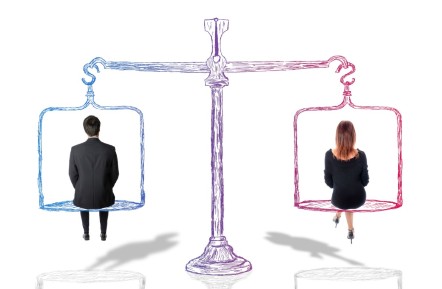Gender Equality in Law Reform

On 12 November 2019, the European Committee on Legal Co-operation (CDCJ) organised an ad hoc meeting to share national experiences and good practices in mainstreaming gender equality issues in the process of law reform. This meeting, chaired by Ms Zuzana Fišerová, Czech member of CDCJ, resulted in numerous exchanges on national practices and in fruitful discussions.
Report by the Rapporteur of the meeting
On the basis of these encouraging results, the CDCJ agreed to further work in this field, resulting in the publication of a Practical guide on mainstreaming gender in public and private law reform processes, prepared by the Mediterranean Institute of Gender Studies (MIGS), under the supervision of the CDCJ.
Practical guide on mainstreaming gender in public and private law reform processes
Practical guide in short - Gender mainstreaming process - public and private law reform processes
Webinar on Mainstreaming gender equality in law reform processes
It is essential to incorporate gender equality into the law reform processes to achieve justice and democracy. Policymakers play a crucial role in ensuring that legal frameworks treat everyone fairly, irrespective of gender. By integrating the perspectives of women and men, boys and girls into the law reform process, it becomes possible to identify and rectify discriminatory practices and provisions that may perpetuate gender-based inequalities and to ensure that laws promote a more equal society. Mainstreaming gender equality is instrumental in making legal systems equally accessible to all, addressing barriers such as biases and societal norms that may hinder women and men, boys and girls from seeking justice.
To help address these matters, a webinar on “Mainstreaming gender equality in law reform processes” was held on 5 December 2023, organised by the Council of Europe’s European Committee on Legal Co-operation (CDCJ) in collaboration with the Gender Equality Commission (GEC). The CDCJ presented the newly developed Practical guide on mainstreaming gender in public and private law reform processes, prepared for policy makers of the member states. This guide aims to assist in considering the gender equality dimension in both public and private law reform processes. It provides practical insights into evaluating policies, including through showcasing legal initiatives, which take into account the principle of gender equality. Examples of good practices of gender-sensitive policymaking in public and private law reform processes were presented, with Ms Helena MORAIS MACEIRA, European Institute for Gender Equality (EIGE), who presented the gender-responsive public procurement, the importance of having the public services, goods, and civil works that consider meeting the needs of women in particular and their impact on gender equality. Mr Nicolas BAILLY, Federal Institute for Gender Equality Belgium, shared as well the good practices of how the gender mainstreaming in legislative reform processes is happening in Belgium.



